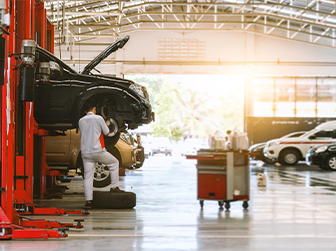Road safety in South Africa has been likened to a national pandemic with a recent study finding that local drivers are the most dangerous globally, regardless of gender. The study conducted by Compare the Market (CTM) says a big contributor to these fatalities is the average age and condition of vehicles in the country, as many older cars are not in a roadworthy state.
The Retail Motor Industry Organisation (RMI) says that although we have ample laws and regulations in place, enforcement is lacking, and this is where the problem comes in.
Regularly testing vehicles older than 10 years for roadworthiness will help reduce the unacceptably high level of accidents on South African roads. “One of our main concerns is the absence of a regular testing regime for 80% of the vehicle population,” says Jakkie Olivier, CEO of RMI.
“Private vehicles in South Africa are only tested for roadworthiness on change of ownership. Vehicles used for income are tested more regularly, i.e. taxis and trucks annually and buses, every six months.”
Checking that these vehicles comply with the rules and regulations of the Road Traffic Act at set intervals will significantly lower the chances of technical issues that cause crashes, as well as reduce the pressures of car accidents on the country’s already overstretched emergency services.

If you drive an older car, it’s essential to keep a close eye on vehicle maintenance to ensure they are safe and roadworthy. If you own a car that’s older than five years, it’s crucial to follow these tips to keep it in top condition:
- Regular car maintenance and services: Schedule routine check-ups with a trusted mechanic. Regular oil changes, filter replacements, and brake inspections are essential for older vehicles to run smoothly. Invest in a Service Plan through MotorHappy to help you plan towards the cost of servicing your car, with an affordable monthly fee. Click here to find out more about a Service Plan through MotorHappy.
- Tyre care: Inspect your tyres for signs of wear and tear regularly. Replace them when the tread depths are too low. When you register for MotorHappy’s FREE online service, MYGARAGE™, you automatically qualify for tyre discounts. You don’t even have to be a MotorHappy customer, no strings attached. Register now to access your discount vouchers.
- Brake checks: Don’t neglect your brakes. Older cars may require more frequent brake inspections and replacements. Squeaky or spongy brakes should be addressed immediately.
- Fluid levels: Keep an eye on all fluid levels, including coolant, transmission, and power steering fluids. Proper levels are vital for the engine's longevity and performance.
- Electrical system: Check your battery, alternator, and wiring regularly to avoid unexpected breakdowns.
- Suspension and steering: Ensure your car’s suspension and steering components are in good shape. This will help maintain stability and control while driving.
- Lights and signals: Regularly check that all lights and signals are working correctly. This is not only a safety concern but also essential to avoid fines.
- Rust prevention: Regularly wash and wax your car, keeping an eye out for rust and paying attention to hidden areas like wheel arches and undercarriage.
- Drive responsibly: Older cars may require a more cautious driving style. Avoid rapid acceleration and heavy braking to reduce wear and tear on critical components.
By following these tips and investing in regular maintenance, you can enjoy the road with your older car for years to come, all while ensuring your safety and the safety of others on the road.
Proton X90 - The Perfect Balance of Style and Functionality in a 7-Seater SUV
Used car shopping? Includes Extended Warranty, and other tips


